Have you ever thought about making your own website? If you haven’t already, we highly recommend that you explore this subject. You might think – why, if you have social media? However, a website can actually be a great tool to have all of your information available in one single place so that advertisers or fans don’t have to search for bits and pieces of it all over the internet.

Let’s think of some more ways this could come in handy, shall we? For example, if we’re talking about potential partner brands, you can create a separate page for them with a business cooperation offer – believe me, it will look much better than some pinned posts on social media.
How about setting up a merch store or selling some other items? A website is great for this, especially since these days putting together your own page isn’t difficult even if you’ve never done it before. After all, there are special design tools for that, like WordPress or WIX.
All in all, as you can see, there are quite a few options for using a website. So today we’re going to tell you about the best hosting services for YouTube creators and the things to look out for when choosing between them.
Hosting services are specialized servers that store data and provide access to it. Simply put, it’s a platform that provides space for your website. There’s a huge number of web hosting services all over the internet, so you have to be able to make an informed decision and choose the one that suits you the best. What are the things to look out for?
1. Reliability and loading speed
A web hosting service should provide great accessibility and fast loading time. Optimized loading speeds will help retain the audience and improve search engine rankings.
2. Additional features and user friendliness
The hosting service’s interface should be intuitive and provide additional tools for content management. And the monetization and analytics features will be a great bonus.
3. Tech support
Having 24/7 tech support will help you quickly resolve any issues with loading or accessing content.
Hosting Service Packages

Hostings are also varied by the type of service package they offer. Here are their standard types.
1. Shared Hosting
This is the most common type of hosting. Within this package, server resources are utilized by multiple websites at the same time. Shared hosting is usually the most affordable.
2. Virtual Private Server (VPS)
It provides a client with a virtual machine on a physical server. Each VPS has its own dedicated resources, which provides more flexibility and control.
3. Dedicated Server
A fully dedicated physical server for a single client. It provides maximum performance, flexibility and control over the server.
4. Cloud Hosting
Hosting resources are provided through virtual server clouds. It provides high availability and flexibility.
5. Managed Hosting
The hosting provider offers complete server management, including maintenance, updates, and security. This type of hosting is especially popular with customers who lack technical skills in server management.
6. Hosting for eCommerce
Specialized hosting packages optimized for online stores. This includes features for payment processing, security, and inventory management.
7. Hosting for WordPress and other CMS
Specially customized hosting packages to work with specific CMS such as WordPress, Joomla, Drupal and others. They include optimization to work with the respective platforms and user-friendly management.

Another important metric to keep an eye on is uptime. This is the period of time during which the server or service is available and running smoothly. Usually, uptime is measured in percentages and is a key indicator of a hosting provider’s reliability. Here are some important aspects of uptime:
1. Uptime measurement
Uptime is usually measured in percentages, and the closer this figure is to 100%, the better.
For example, 99.9% uptime means that a server may be unavailable for about 8.76 hours per year (or about 43 minutes per month).
2. Guaranteed uptime
Many hosting providers offer a guaranteed level of uptime in their SLA (Service Level Agreement). For example, a provider may promise 99.9% uptime and compensation to the client if the acceptable downtime is exceeded.
3. Uptime monitoring
There are specialized monitoring services that regularly check the availability of a server or website to track uptime. If an uptime problem is detected, managers can quickly react and fix the problem.
That’s why it is important to choose a hosting provider with a high level of uptime and regularly monitor the accessibility of your website or service. The general rule of thumb is that the higher the uptime level, the more reliable the hosting provider is and the less likely you are to lose business due to accessibility issues.
1. DreamHost
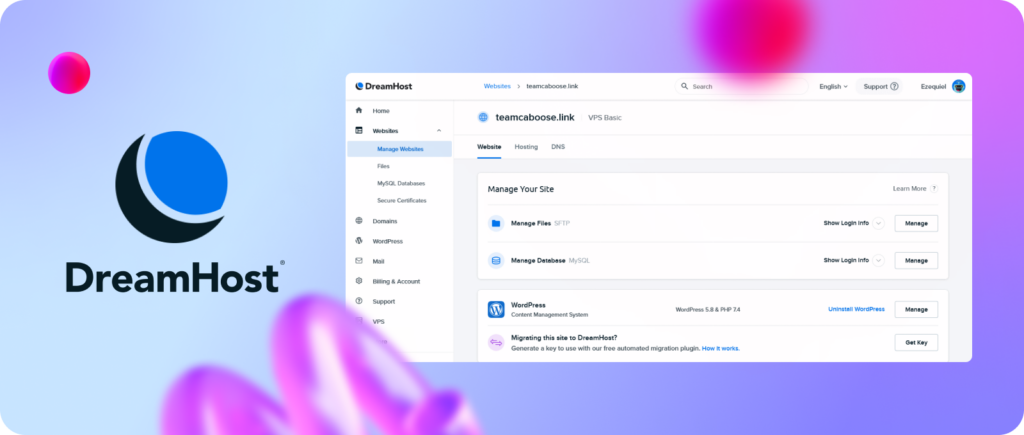
A reliable hosting service with a focus on user friendliness and reliability. The platform offers shared, VPS, and dedicated hosting, as well as specialized packages for WordPress and cloud hosting. DreamHost also has website building tools.
2. Hostinger
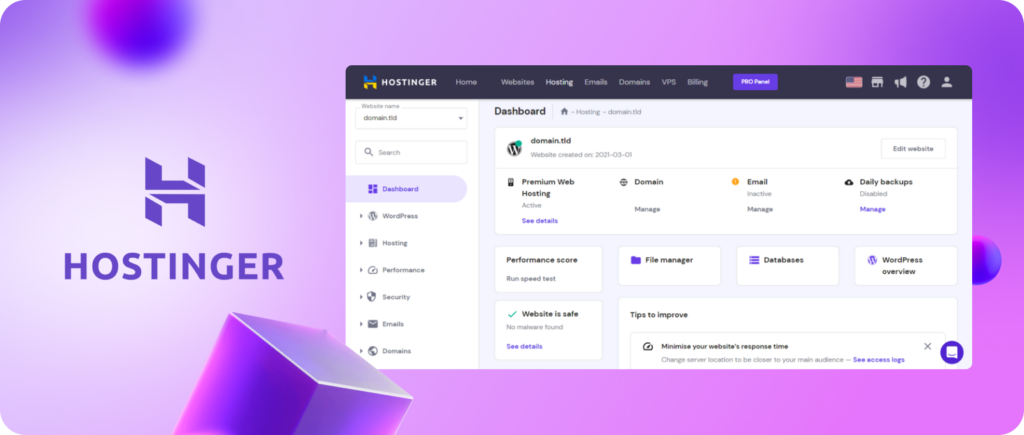
Hostinger is known for its low prices and good performance. It offers various hosting packages as well as tools for website creation and hosting management.
3. GoDaddy
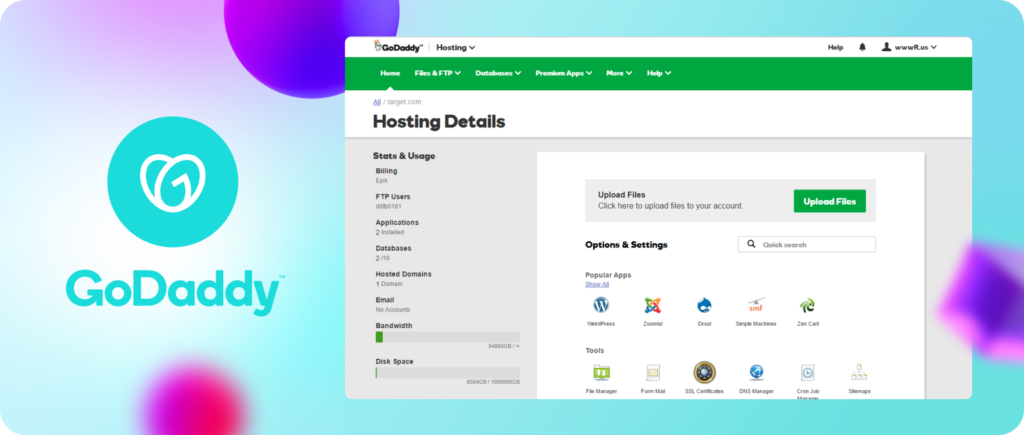
GoDaddy is one of the largest and most well-known hosting providers. They offer you a wide range of services including shared, VPS, and dedicated hosting, as well as specialized packages for WordPress and eCommerce. GoDaddy also has tools for domain registration and website building.
4. WP Engine
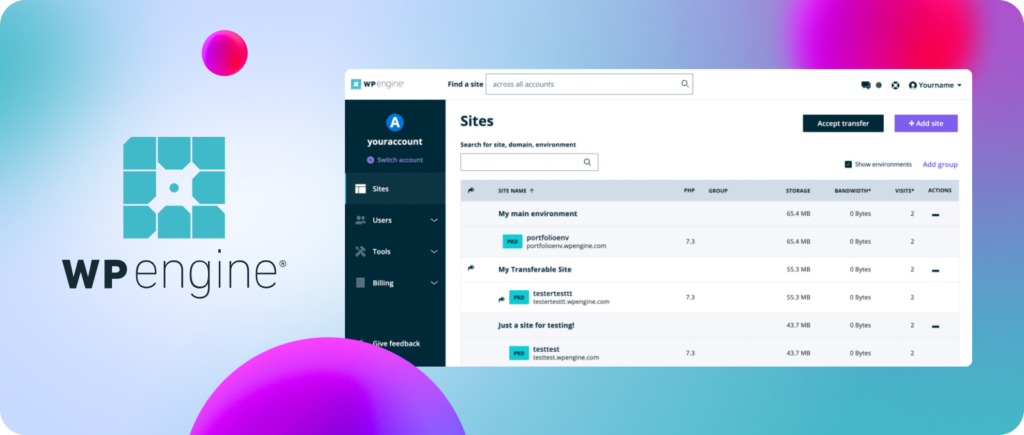
WP Engine specializes in WordPress hosting and is known for its high performance and security. The company offers managed WordPress hosting with optimized servers and developer tools, as well as extensive features for content management and analytics.
5. Liquid Web
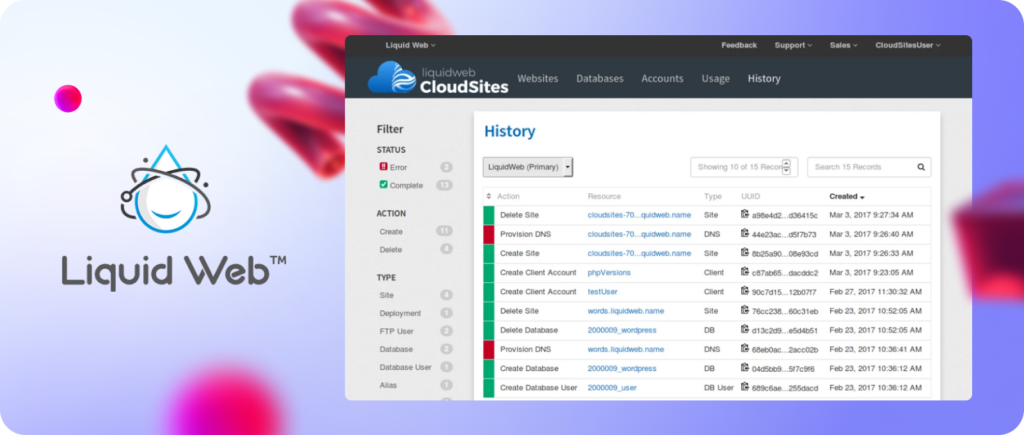
Liquid Web is a premium hosting provider with a focus on high performance and personalized service. It provides a wide range of services as well as specialized eCommerce and managed WordPress hosting packages.
6. iPage

iPage offers affordable hosting plans with a focus on being easy to use. Its offering is standard, including shared hosting, VPS and dedicated servers, as well as website building and eCommerce tools.
7. HostPapa
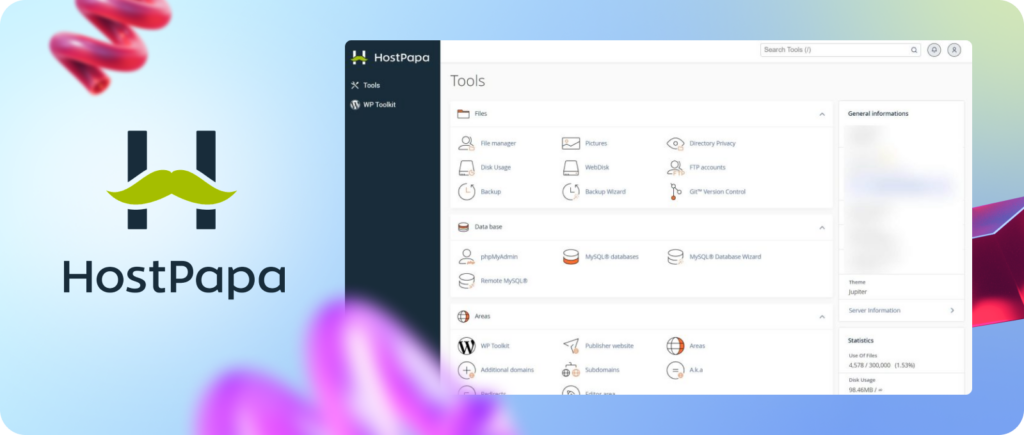
HostPapa is known for its environmental initiative and managed hosting. They offer shared, VPS, and dedicated hosting, as well as specialized packages for WordPress and eCommerce.
8. GreenGeeks

GreenGeeks is an eco-friendly hosting service that runs on green servers. It’s an obvious choice if that’s important to you.
9. 1&1 IONOS

1&1 IONOS is a large web hosting provider with a wide range of services. It offers shared, VPS and dedicated hosting, as well as domain registration and website creation services.
10. ScalaHosting
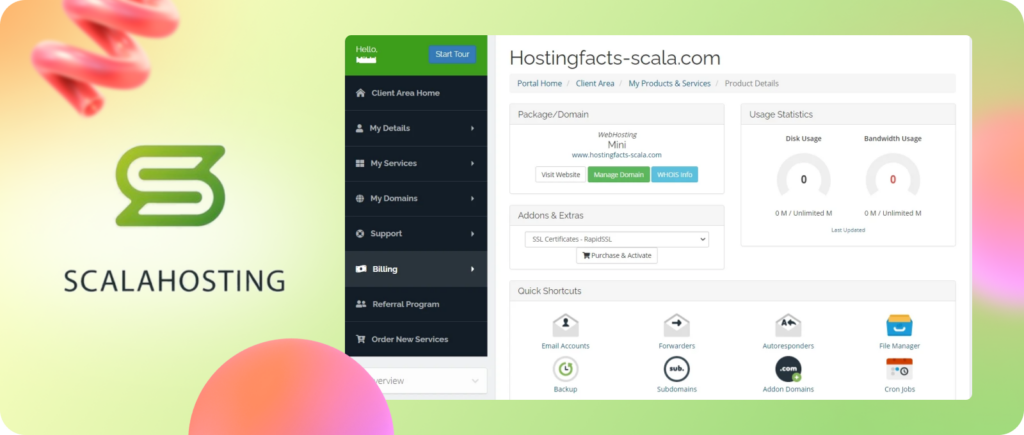
ScalaHosting specializes in high performance hosting and cloud solutions.
11. DigitalOcean
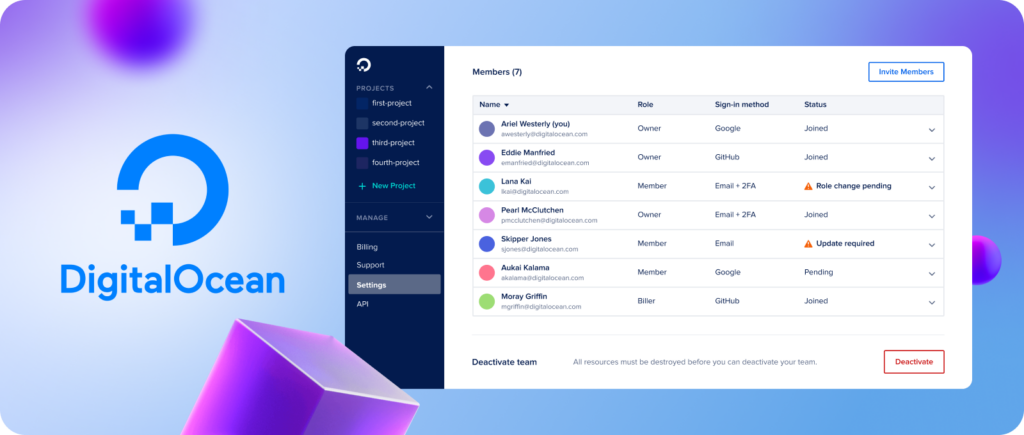
DigitalOcean is a cloud hosting service designed primarily for developers and tech specialists. They offer virtual servers with high performance and flexible settings.
Conclusion
As you can see, you always have a choice when it comes to hosting, because this is by no means a complete list of the best web hosts for creators. Focus on reliability, loading speed, additional features and quality tech support (like Mediacube’s), and your website will run smoothly!
Comments